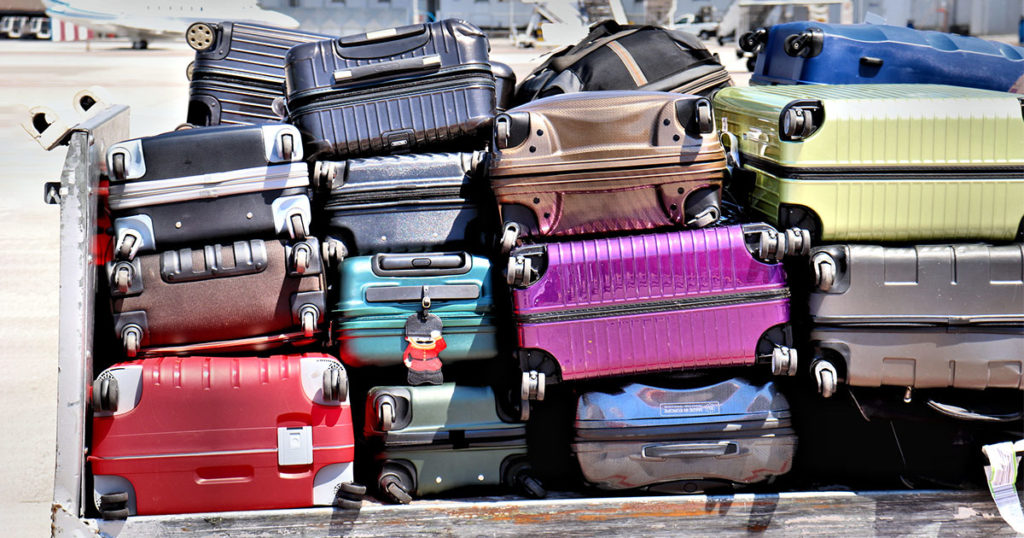
Seven weeks after filing a claim for a missing bag, I found an email in my inbox from the central luggage specialist at American Airlines. She asked if my luggage was still lost or if it had turned up, so I answered that yes, the bag had reappeared, two weeks after it had gone missing. She wrote back that the airline would now reimburse me for my extra expenses. A check was on the way.
“How nice,” I thought, because who isn’t happy about a check? Especially one you hadn’t expected.
I had not forgotten that during those two weeks without my luggage—when I was visiting family in the United States—I had bought some toiletries one day and on another some underclothes to supplement the clothing I’d borrowed first from my mother, then my sister-in-law, then my stepmother. At the back of my mind was the awareness that I could make a claim to recover the money I’d spent on these necessaries, but it seemed more trouble than it was worth. Instead, I had put it all out of my mind, forgetting that as part of the initial missing bag report I filed, I had already sent the two receipts to the airline. The total was less than $100.
“Buy some clothes too,” family had urged. “Have the airline pay.” But I had preferred to make do with a borrowed skirt and pair of shorts, and a borrowed T-shirt to supplement the one I’d traveled in. For swimwear, I used my mother’s 1950s-style bathing costume. It was a one-piece, navy blue, cotton affair with white piping, designed to resemble a shorts and top ensemble. It looked like a child’s playsuit. To wear such a retro garment made me feel strangely daring and chic. Hitting the lake in my bathing costume was an adventure. That hadn’t been true in a very long time of anything I’d worn. In contrast, there was nothing daring or chic about my daily wardrobe. And no wondering whether to wear shorts or a skirt, or what top to pair with what bottom. To put on each morning whichever outfit wasn’t drying on the line made me feel practical and efficient, and it made dressing the easiest thing in the world, utterly determined by the possibilities, no whim anywhere at all. I felt liberated on both counts.
When my bag did show up after two weeks, I was glad to recover my things. But I was especially relieved not to have to remember everything that was in the suitcase, as I would have had to do, or pretend to do, as part of a lost bag claim, listing the contents and the the price of each item. Who remembers that? Not I. I had stood in my bedroom when I packed, and instead of gathering the clothing I would need for my month away, I opened my wardrobe and reached in. Might this come in handy, I asked myself, holding up a pair of khakis. Could I use this, I wondered, contemplating a sweater. Was this T-shirt possibly one I’d have a use for? Might, could, and possibly were the words I’d used, speaking to myself, and maybe was invariably the answer to my questions. I squeezed half my wardrobe into my bag. When I pack next year, I will ask the harder question: Do I really need this? If I’m truthful in my answer, I will finally travel light, as I’ve always imagined doing: unencumbered, free. The alternative is absurd. To use that newfangled gadget, a smart phone, to photograph my bag’s contents for the possibility of that most modern of inconveniences, lost luggage.

